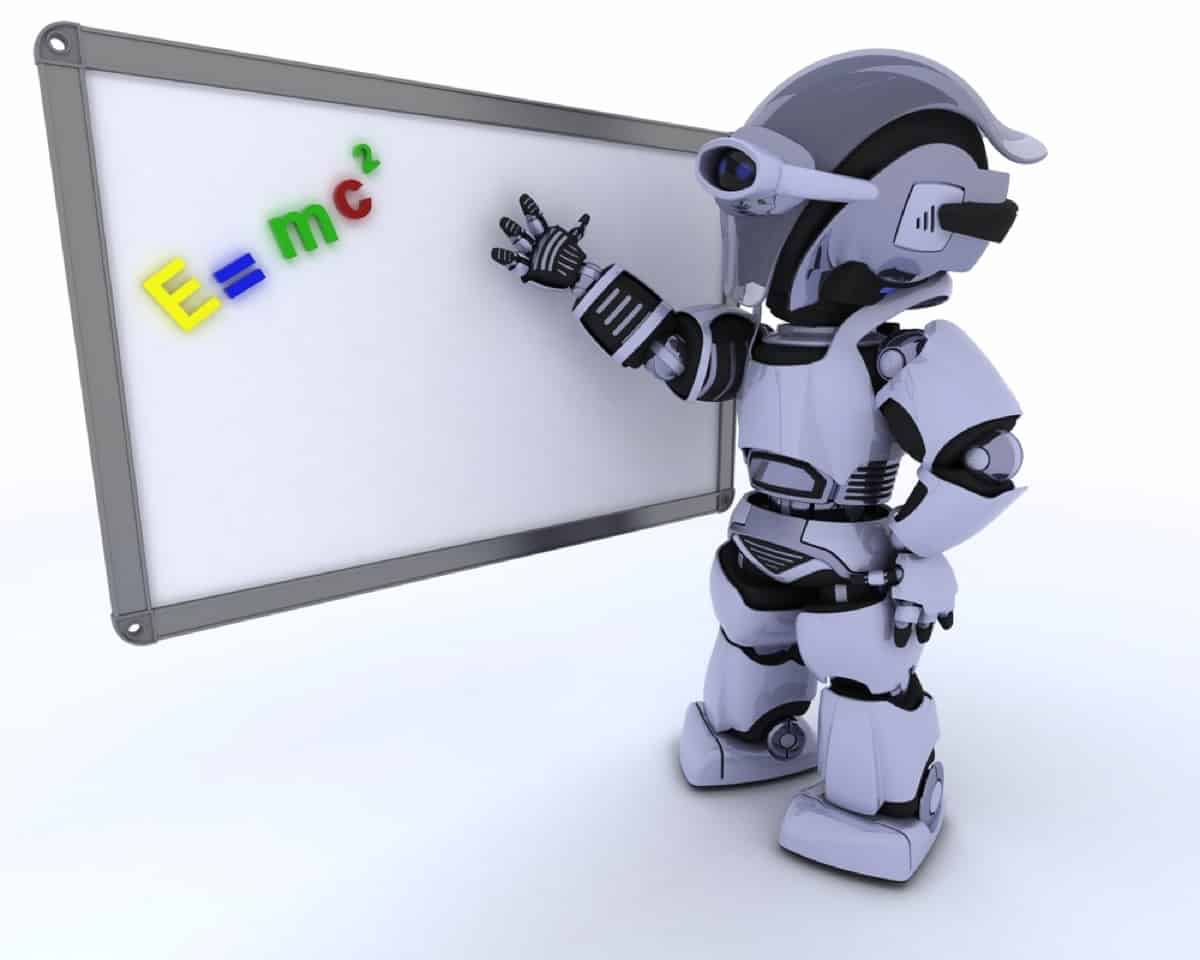Education May be in Apple’s DNA, But Not in Apple’s Future
Supercomputers, the internet and Artificial Intelligence (AI) agents are coming into full bloom. The future is evolving quickly away from GUI and touch-based methods to AI and voice control. The implications for our personal computing experience are immense, and it all starts with the fundamentals of the education of our children.

It may start like this, but Star Trek’s Lt. Commander Data is the ultimate goal. (See below.)
One of my strong interests is computer-aided learning. My suspicion is that in 20 years, more AI agents will be tutoring humans than humans do. Here’s an appetizer to get us going. “Could online tutors and artificial intelligence be the future of teaching?” [Betteridge’s Law can be ignored here,]
I asked one of my recent Background Mode guests, Phil Shapiro, what he thought of that article.
I think this is promising and am cautiously optimistic that this can expand learning in the ways it needs to expand. I favor any and all methods that give learners greater control over their learning — allowing them to proceed at their own chosen pace and direction. I chaffed a lot in high school that I was required to take courses (such as American history) that I was perfectly capable of studying and mastering on my own — freeing up time in school for learning that I wasn’t able to master on my own, such as advanced placement physics.
I’ve been saying for years that the internet doesn’t provide the training, wisdom and judgment to understand and interpret what’s on the internet itself. That’s why fake news works. Will computer-aided instruction solve that problem or make it worse? That’s a major challenge for a democracy.
Curiously, Apple has shown few signs of being involved in computer-aided learning, focusing instead on mobility queries. However, Google and Amazon seem to have a sense that in-place AIs that interact with humans in the home are vital. I can imagine that home-schooling is somewhere on their roadmaps.
Learning, especially childhood learning, is a static experience that requires broad and sophisticated levels of academic research. Apple’s Phil Schiller has said that education is in Apple’s DNA. But that may be just market-speak for wanting to sell a boatload of iPads to kids. The actual education process, baked into very good AI agents, is much more formidable technical challenge.
I can see these small home devices, Google Home and Amazon Alexa moving from little boxes into cute and friendly androids that can instruct on the home or school’s large TV display. I very much appreciate this quote from NASA’s Star Trek page.
An important research organization for robotics is the American Association for Artificial Intelligence. At a conference on cybernetics several years ago, the president of the association was asked what is the ultimate goal of his field of technology. He replied, “Lieutenant Commander Data.”

Star Trek: TNG. Lt. Commander Data
Wow. Just wow.
Perhaps it’s hard to easily see the prospects of Big Money to be made here by Apple. But, it’s certainly the future, and if education is really in Apple’s DNA, then the development of AI teaching agents that are trustworthy is both important to customers and full of serendipity for Apple’s economic future.
Next page: The news debris for the week of January 2nd. Asking the important questions about Apple in 2017.
Page 2 – News Debris for the Week of January 2nd. Asking the Important Questions About Apple
It’s very tempting to guess and write about what Apple might do in 2017. Or else express one’s wishes about what Apple ought to do. Articles like that can be cool if the author is very deep on Apple, but many of them are just tiresome. Much better, however, is to ask some very pointed questions. As Neil Cybart points out:
This not only helps guide our analysis in the coming months, but also proves incredibly useful for navigating Silicon Valley and Wall Street.
To that end, author Cybart has collected some pretty good questions about Apple in 2017 for us to ponder and monitor in the coming months. “Apple Questions for 2017.” After all, we can’t predict Apple’s future, but we can ask some pretty smart and probing questions.

Image credit: Mercedes
The conventional wisdom is that Apple has (had?) been pondering the development of battery powered electric vehicle (EV) in the style of Tesla. However, a long time ago, I read that BMW thought that hydrogen powered fuel cells would be ultimately superior. Still, the industry powered on with EVs.
This article suggests that automotive executives may see EVs as a temporary technology after all. It may just depend on how and when the respective technology curves peak. See: “Majority of automotive execs still believe battery-powered cars will fail and fuel cells are the future.”
By technology curves, I mean that if battery powered EVs can quickly and definitely solve the “range anxiety” problem, a superior, competing technology like fuel cells may have trouble taking hold for economic and consumer practicality reasons. I declare the resolution of range anxiety at 500 miles (804 km) because that’s about all anyone would want to drive in an eight hour day with short breaks that don’t require recharging a battery for a few hours.
So far, technology has been hovering in the 200 mile range (Chevy Bolt) or 240 mile range (Tesla). But this next article suggests that Mercedes has a car in development that can go 310 miles (500 km) on a charge. We’re getting to that 500 mile number quickly. “Here’s the electric car Mercedes is building to take on Tesla.” [Photo above.]
What these two articles tell me is that the automotive industry, perhaps fearful of Apple at the outset, has been in top gear, utilizing its vast experience to dramatically redesign and reengineer the modern car. How could Apple have ever kept up with these dizzying developments? Or should they have even tried? As the preamble on page one points out, there are other imperatives for Apple vastly within its potential expertise.
We are routinely told that the camera in our iPhone is very, very good. But it can’t ultimately compete with the DLSR. Is that just legalese? So how about a detailed comparison? “Mini-shootout: $900 smartphone vs. $3,000 DSLR, round three.”
Apple and security experts tell us that personal privacy and security via encryption are fundamental to democracy and freedom. Cindy Cohn from the EFF told me the same. However, Dr. David Brin, the astrophysicist and science fiction writer, who has also been on Background Mode, has some counter thoughts. Recently he wrote a thought provoking article in his “Contrary Brin” series. “Encryption is not the answer.” What do you think?
Finally, you may have read articles about the various shenanigans Facebook pulls while you’re online. But did you know that, once you create an account, Facebook works behind the scenes to collect even more information about you—even after you’re logged out? See: “Facebook Knows A Whole Lot About Your Offline Life.” Supplemental reading: “2016 in review: How Facebook turned into the bad guy.”
______________________
Teaser and robot graphic via Shutterstock.
Particle Debris is a generally a mix of John Martellaro’s observations and opinions about a standout event or article of the week (preamble on page one) followed on page two by a discussion of articles that didn’t make the TMO headlines, the technical news debris. The column is published most every Friday except for holidays.
0 Response to "Education May be in Apple’s DNA, But Not in Apple’s Future"
Post a Comment